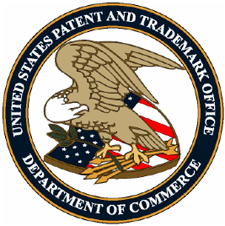Taking Private Property? Examining the Patent Review Process - Podcast
Intellectual Property Practice Group Podcast
| Sponsors: | Intellectual Property Practice Group |
|---|
 The 2011 America Invents Act created provisions for Inter Partes Review (“IPR”) and Post Grant Review (“PGR”) of patents. According to PTO statistics, to date, nearly 50,000 patent claims have been challenged under IPR, and nearly 11,000 (22.4%) of those claims have been invalidated. On June 20, 2016, in Cuozzo Speed Technologies v. Lee, the Supreme Court upheld the Patent Trial and Appeal Board's (PTAB) interpretation of two key elements of IPR. The Court held that (1) decisions to institute IPR proceedings are non-appealable, and (2) the PTO has the authority to determine claim meaning and validity under its “broadest reasonable construction” standard.
The 2011 America Invents Act created provisions for Inter Partes Review (“IPR”) and Post Grant Review (“PGR”) of patents. According to PTO statistics, to date, nearly 50,000 patent claims have been challenged under IPR, and nearly 11,000 (22.4%) of those claims have been invalidated. On June 20, 2016, in Cuozzo Speed Technologies v. Lee, the Supreme Court upheld the Patent Trial and Appeal Board's (PTAB) interpretation of two key elements of IPR. The Court held that (1) decisions to institute IPR proceedings are non-appealable, and (2) the PTO has the authority to determine claim meaning and validity under its “broadest reasonable construction” standard.
Important outstanding questions about the constitutionality of IPR and PGR remain, however. Specifically, once the Patent and Trademark Office has granted a patent, does a decision made by an administrative judge within the executive branch to invalidate the patent under IPR/PGR amount to a taking under the 5th Amendment of the U.S. Constitution? Moreover, does such a procedure by which issued patents are reviewed for validity by non-Article III judges raise separation of powers issues?
Professor Greg Dolin participated in the Teleforum to elucidate the argument that he and Irina Manta make in their recent article, Taking Patents, that PGR and IPR decisions invalidating patents do indeed amount to takings under the 5th Amendment. Professor Camilla Hrdy and Yale Information Society Law Project Fellow Ben Picozzi believe that PTAB decisions invalidating patents under IPR and PGR do not raise takings problems. These patent experts also discussed separation of powers issues related to IPR and PGR.
Featuring:
- Prof. Gregory Dolin, Co-director of the Center for Medicine and Law, University of Baltimore School of Law
- Prof. Camilla Hrdy, Center for Technology, Innovation & Competition Fellow, University of Pennsylvania Law School
- Prof. David S. Olson, Associate Professor of Law, Boston College Law School
- Mr. Ben Picozzi, Student Fellow, Information Society Project, Yale Law School





